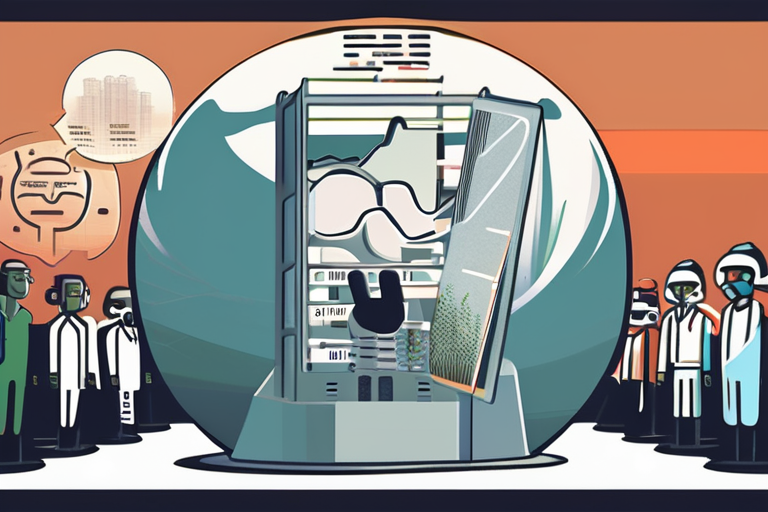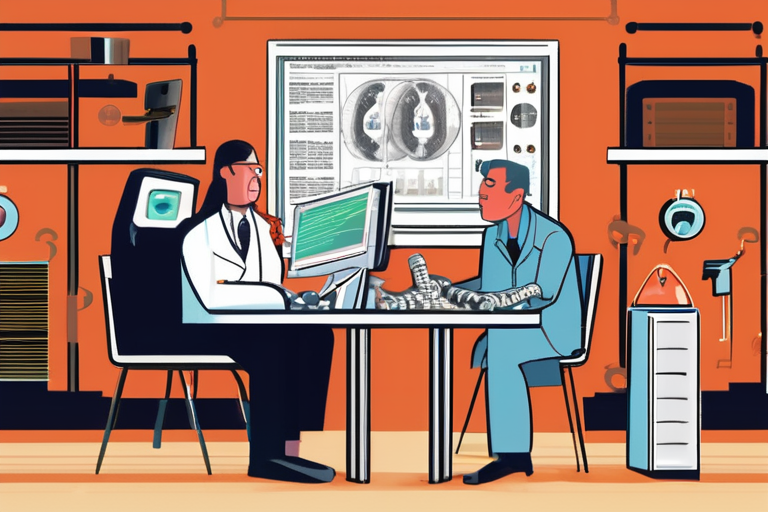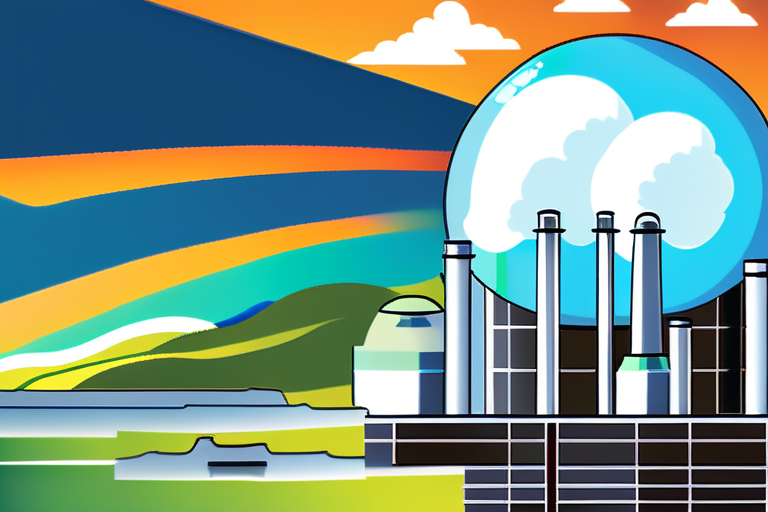Climate Scientists Raise Middle Finger to Trump's Censorship Efforts
In a bold move against the Trump administration's attempts to muzzle climate research, thousands of scientists and allies have come together to create their own platforms for sharing critical climate data and information. The effort, which has been months in the making, aims to replicate the public-oriented climate content from Climate.gov, a website that was heavily edited or deleted by the administration.
The initiative, spearheaded by researchers who formerly worked at the National Oceanic and Atmospheric Administration (NOAA), launched Climate.us, a new portal for sharing climate data and information. The site is expected to become a go-to resource for scientists, policymakers, and the general public seeking accurate and unbiased climate research.
"We're not just trying to replace what was lost," said Dr. Kathryn Sullivan, a former NOAA administrator who helped launch Climate.us. "We're creating something new and better, with more robust data and analysis."
The Trump administration's efforts to suppress climate research have been well-documented. In 2018, the president signed an executive order aimed at reducing the role of science in policy-making, and since then, numerous scientists have reported being censored or silenced.
In response, a group of researchers has come together to create their own platforms for sharing climate data and information. Climate.us is just one example of this effort, with other initiatives underway to replicate the work of Climate.gov.
The American Geophysical Union (AGU) and the American Meteorological Society (AMS) have also launched a joint initiative to maintain momentum on the 6th National Climate Assessment, a congressionally mandated report that was heavily edited or deleted by the administration. The AGU and AMS are soliciting studies for a special Climate Collection, which will be published online.
"This is not just about climate research," said Dr. Maria Zuber, president of the AGU. "It's about the integrity of science itself. We're committed to ensuring that the public has access to accurate and unbiased information."
The implications of these efforts are far-reaching. By creating their own platforms for sharing climate data and information, scientists are pushing back against what many see as a concerted effort by the Trump administration to suppress critical research.
"This is a wake-up call for policymakers," said Dr. Michael Mann, a climatologist at Penn State University. "They need to understand that science is not a partisan issue. It's about protecting our planet and ensuring a safe future for all."
As the climate crisis continues to escalate, these efforts are more crucial than ever. By working together, scientists can ensure that critical research is shared with the public, regardless of who is in power.
Background:
The Trump administration's attempts to suppress climate research have been well-documented. In 2018, the president signed an executive order aimed at reducing the role of science in policy-making, and since then, numerous scientists have reported being censored or silenced.
Context:
Climate change is one of the most pressing issues facing humanity today. Rising temperatures, more frequent natural disasters, and changing weather patterns are just a few of the consequences of human activities that release greenhouse gases into the atmosphere.
Additional Perspectives:
Dr. Katharine Hayhoe, a climatologist at Texas Tech University, noted that these efforts are not just about climate research, but also about the role of science in society. "Science is not a partisan issue," she said. "It's about protecting our planet and ensuring a safe future for all."
Current Status:
Climate.us is currently live, with more content being added regularly. The AGU and AMS are soliciting studies for their Climate Collection, which will be published online.
Next Developments:
As the climate crisis continues to escalate, these efforts are expected to grow in scope and scale. Scientists are calling on policymakers to prioritize climate research and ensure that critical information is shared with the public.
*Reporting by Motherjones.*



 Hoppi
Hoppi

 Hoppi
Hoppi

 Hoppi
Hoppi

 Hoppi
Hoppi

 Hoppi
Hoppi

 Hoppi
Hoppi











